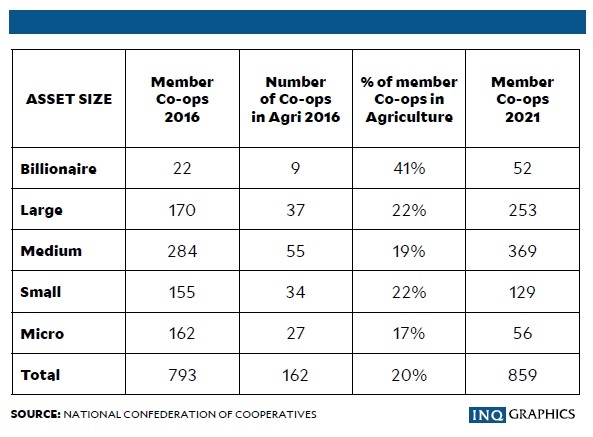A cooperative, or co-op, can be a source of hope or despair. That depends on its management capability.
This was the conclusion at the end of the forum “Revitalizing Food Systems: Generating Value with Producers, Markets and Consumers-Cooperative Experiences,” sponsored by the United Nations Sustainable Development Solutions Network (SDSN). It was moderated by its Philippine country director, Dr. Philip Tuaño from the Ateneo de Manila University. The action implication is that cases of despair can be transformed into hope, but only if the Cooperative Development Authority (CDA) is given the budget to fulfill its role of nurturing and supporting cooperatives. This is especially important in the area of management capability.
Today, CDA limits its activities mainly to registration and regulation. The great potential of promoting cooperatives to help agriculture, as is happening in other countries, is left untapped. Because there is no adequate guidance on management capability, many co-ops fail. This has given co-ops an image of despair rather than hope.
Success stories
But are there successful cooperatives? (See table)
The larger co-ops have increased in number, but the smaller ones have decreased. The determining factor is management capability. Without this, the smaller co-ops fail. If this is corrected, farmers and fisherfolk who are the potential co-op beneficiaries can be helped, with the additional benefit of encouraging savings and providing profit sharing. This is where CDA should get involved.
At the SDSN Forum, the success story of First Community Cooperative (Ficco) was discussed by board chair Anselmo Mercado. It started 60 years ago with only 15 members and savings of less than P100. Today, Ficco’s good management capability has resulted in assets of P15.7 billion with 355,621 members. In 2020, it posted P14.8 billion in income, P830 million in expenses and a net surplus of P640 million. It has engaged in support activities such as social enterprise, community assistance, environment protection and even rice trading. Sylvia Okinley-Paraguya, CEO of the National Confederation of Cooperatives, gave examples of co-ops that provided valuable agriculture services in areas like effective production, technology dissemination, financial advice and marketing.
Cresente Paez, former cooperative party list representative and now chief executive officer of Agricoop, identified new directives for co-ops engaged in agriculture development. He proposed three key strategies: 1. maximizing products and markets; 2. redefining supply chains, and 3. building supportive commodity clusters at the the co-op network’s locations. If CDA were given the necessary budget, these strategies can be given wider dissemination and further improve co-op effectiveness.
Way forward
Learning about these well-managed cooperatives was an eye-opener for those in the forum, many of them were more familiar with small co-ops that were limited to credit and often failed due to mismanagement.
During the open forum, Dulce Punzalan, World Bamboo Ambassador and corporate secretary of the Management Association of the Philippines–Agribusiness and Countryside Development Foundation, cited the five priority action areas identified during the United Nations World Food System Summit 2021 which she attended on Sept. 23. These are: 1. nourish all people; 2. boost nature-based solutions of production; 3. advance of equitable livelihoods, decent work and empowered communities; 4. build resilience to vulnerabilities, shocks and stresses; 5. means of implementation (e.g. finance, governance, science and knowledge).
The forum discussion concluded that cooperatives could address effectively the third area of livelihood, decent work and empowered communities. They should use the fifth area of governance and identify CDA as the implementing mechanism to achieve this. But CDA should be given adequate budget to do this. The small co-ops need them, but the large ones do not. The latter should, instead, help CDA in cooperative promotion, especially in management capability.
October 2021 is Cooperative Month. Before the month ends, the government should give an assurance that CDA will get an adequate budget to fulfill its critical role of co-op development.
The author is Agriwatch chair, former Secretary of Presidential programs and projects and former undersecretary of DA and DTI. Contact is Agriwatch_phil@yahoo.com


